Roofer Did Not Pull Permit? (Here's What You Can Do)

For a contractor to get a permit, they must prove that they are licensed with each city where they work. As a homeowner, this is important for your insurance and to cover anything on your property. Pulling a permit is just a phrase contractors use to state they are applying for a permit, but what if your roofer did not pull the permit?
If you are considering replacing your roof, get a quote from local contractors in your area here.
Some companies don’t pull a permit to cut costs, but it can be a big mistake for you in the end. If you use an unlicensed contractor and you discover the roofer did not pull the permit, it can cause significant problems later. By not pulling a permit, roofs can fail inspection, the city won’t record the work, and you may pay more for repairs.
Your roofer may be subject to a fine if work does fail the inspection and a permit isn’t issued. This can be a mark on their standard of work and may also affect future business. As the homeowner, you can pull a permit, but knowing how is critical.
Pulling A Permit
Pulling a permit is as simple as going to your county or city hall and applying for a construction permit. It is typically your contractor’s or roofing company’s responsibility. Once the roof is complete, they will also set up, via the permit, an inspection.
The average cost of pulling a permit is $130 but be mindful that different cities and zones may charge more. This is a simple, low-cost addition to the necessary work. The size of the job, from replacing a door to replacing an entire roof, also determines the cost and type of permit required.
What Does It Mean If A Roofer Did Not Pull A Permit?
If your roofer did not pull a permit, it means they didn’t apply for one for the work they are doing. Contractors may assume that a minor job or repair does not need a permit and will not apply for one. Some roofers might even avoid certain costs to get a higher pay cut in the end.
When your roofer neglects to pull a permit, the city can deny the work done during an inspection. When this happens, you’ll need to redo the job or repair it and likely end up paying more. You can rest assured that you’ll get guaranteed work and a thorough and accurate inspection when you get a permit.
Not pulling a permit is not the end of the world nor the end of your construction. It can just cause some problems at the end of finishing or selling your property. You may have to pay hefty fines or penalties.
If you or your roofer do not pull a permit, you are subject to more work and time dumped into your home. Plus, if and when you decide to sell your home if a permit was never listed for work. A fine is attached because the work was not recorded and may owe additional taxes.
How Can I See That My Roofer Pulled A Permit?
To search for a permit on your property is simple. You can usually go online or to your local office and look for a permit. Their archives are vast and able to monitor valid and working permits.
You can look at any time to see if someone is pulling a permit for your property. You will find the address, the company’s name, and dates of work done and completed in the permit. This information can be crucial if you have a warranty or need a repair in a small amount of time.
It’s good to use the Municipality Building Department website and the National GIS building plans website. When you create an account, you can have free reign to search the database. By using the websites, you can search and download any documents you need along with floor plans.
You can look for a permit in person at your local office or even ask your contractor for the permit. In stopping by your local building department, they can help you search and retrieve a permit for your home.
What Work Needs A Permit?
When it comes to working on and fixing a home, many things do not need any type of permit. For example, putting in a toilet, painting, installing fixtures–you typically don’t need a permit to fulfill this work. Usually, work that always requires a permit is a complete remodel, additions, and roofing.
In certain states and counties, you don’t need permits for finishing a basement or putting up drywall. However, some work with extensive electrical and construction will need a permit to avoid fines later.
Do I Need To Pull A Permit If My Contractor Doesn’t?
As stated before, with any home renovation or work, you might need to acquire a permit. You may not need a permit with anything that does not change your home’s internal structure or blueprint. However, roofs and adding an addition require documentation, permits, and proper inspections.
Pulling your permit can make you financially and structurally responsible. If your contractor does not pull a permit and you do, you have marked yourself as supervisor. This means you are responsible for all the work anyone does on your home.
Can I Pull A Permit After Work Is Done?
You’re supposed to secure a permit before beginning work, but it is possible to get one later. Getting a permit after the work occurs is a bit more complicated and can cost more. Pulling a permit after work can extend the job but might be worth it in the end.
An inspection is necessary to certify the work is final and correct to get a permit. If repairs occur and you fix any issues, then the inspector can issue a permit. Unfortunately, the inspection may fail, resulting in needing to tear down work and redo it.
When the inspection fails or has significant issues, you might need to redo the constructed work. This extra work can cause you to pay more than just paying for pulling a permit in the first place.
Related Questions
Do I need to pull a permit for electrical work?
Typically, any electrical work done inside a residence requires a permit. The individual or contractor that is doing the job would pull one. The one doing the electrical work needs to be the one to get the permit.Depending on where you live, if the work takes place in a single-residence home, you likely don’t need a permit. Doing work on your own home, such as plumbing and wiring, may not require a professional or permit. Minor jobs require minor steps.There are exemptions to not getting a permit, including installing lights or lamps and installing or fixing equipment. Regular maintenance of your home amenities is also an exemption. Exemptions are valid as long as the cost of the fix is less than $1,000; otherwise, you need a permit.
What do I need to repair my roof?
Fixing a roof can be tedious and time-consuming work, but you can prevent further damage when you do it right. When a leak springs and a roofer is unavailable, you can patch or fix the roof yourself. But in order to do that, you will need to know what you are doing and what to use.Sometimes during a torrential downpour, your roof may leak, and a tarp can fix this. Pinpointing the trouble spot and covering it with a tarp is best for a temporary fix. Laying the tarp, possibly under shingles, will defer the water from going under the tarp and letting the leak continue.You will need asphalt shingles, roofing tar, roofing nails, sealant, and a waterproofing underlayment for a bigger repair. First, you will tear up the ruined shingles and replace them by laying the underlayment, sealant, and shingles in place. Then, use the nails to keep the shingles in place and the tar to seal them from water.
UpgradedHome participates in affiliate programs. When you purchase through our links, we may earn a commission.

Stacy Randall is a wife, mother, and freelance writer from NOLA that has always had a love for DIY projects, home organization, and making spaces beautiful. Together with her husband, she has been spending the last several years lovingly renovating her grandparent's former home, making it their own and learning a lot about life along the way.
More by Stacy Randall



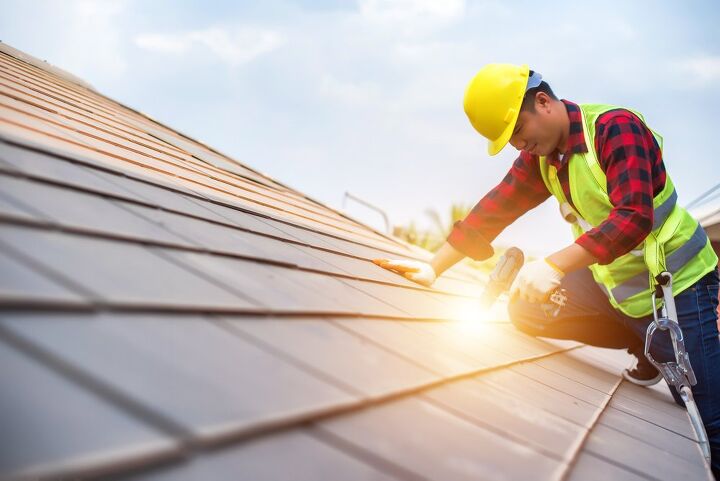






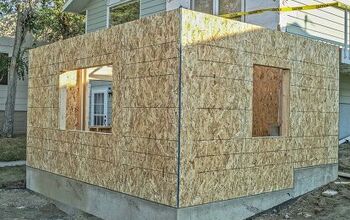

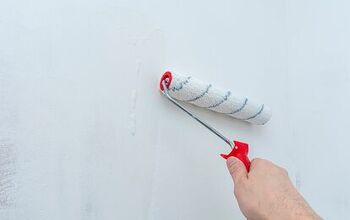
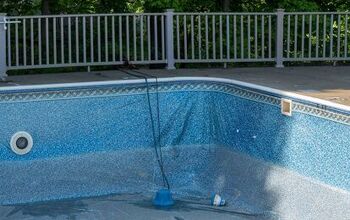
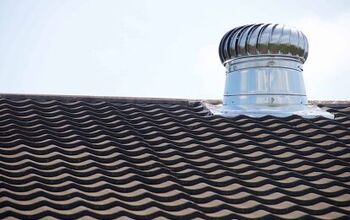
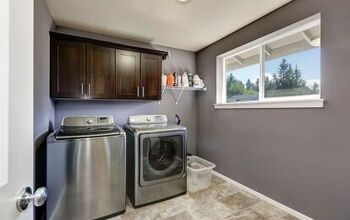





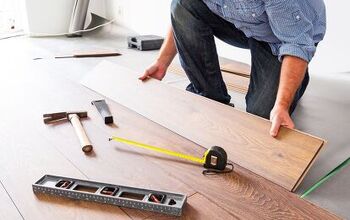



![How To Reset A Whirlpool Cabrio Washer [In 5 Easy Steps!]](https://cdn-fastly.upgradedhome.com/media/2023/07/31/9076531/how-to-reset-a-whirlpool-cabrio-washer-in-5-easy-steps.jpg?size=350x220)

